Previously the Government had argued that the new Fleet Solid Support Ships were not warships and as such, were eligible for international tendering rather than being restricted to British shipyards.
The £1.5bn competition to build up to three Fleet Solid Support Ships was suspended last year and an update was due this autumn.
Defence Secretary Ben Wallace told the Commons today “I intend to announce the procurement timetable for these warships in due course, aftermarket testing has completed”.
This is important because according to government policy, ‘warships’ must be built inside the United Kingdom.
The definition of warship used by the Government had been previously challenged by people from all sides of the political spectrum. For perspective, according to the UN Convention on the Law of the Sea article 29:
“For the purposes of this Convention, “warship” means a ship belonging to the armed forces of a State bearing the external marks distinguishing such ships of its nationality, under the command of an officer duly commissioned by the government of the State and whose name appears in the appropriate service list or its equivalent, and manned by a crew which is under regular armed forces discipline.”
However, the National Shipbuilding Strategy defines warships as solely destroyers, frigates and aircraft carriers.
This definition was also highlighted during a debate on the topic in Parliament last year with Stuart Andrew, then Minister for Defence Procurement, saying the following about the Fleet Solid Support Ships:
“It is not a warship by definition, for the simple reason that the definition is based on the UK’s requirement to retain the ability to design, build and integrate frigates, destroyers and aircraft carriers for reasons of national security, ensuring that the complex nature of the construct is an important part of it from the very beginning. We will continue to have this argument—unions are coming to meet me very soon to discuss it.”
Ross Murdoch, GMB National Officer and CSEU Chair, said:
“It looks like the Government has finally acknowledged what GMB has always said – these are warships. There is no reason to now hide behind any treaty – they must be built in UK.”
The UK Defence Journal, SavetheRoyalNavy.org and other commentators as well as GMB and other shipbuilding unions long campaigned for the £1billion FSS contract to be given to UK shipyards – producing a report highlighting the estimated 6,700 jobs created or secured if the orders were kept in the UK.
Due tot he aforementioned delays, the MoD expects that there will be a delay of between 18 and 36 months to the first new Fleet Solid Support Ship entering service. You can read more about this here.


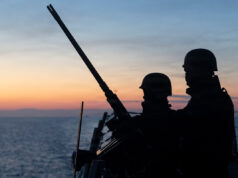

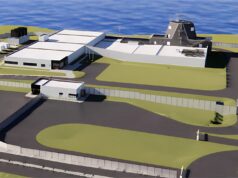
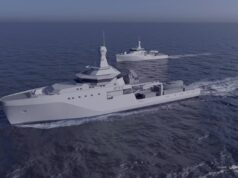
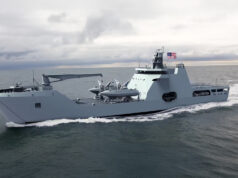
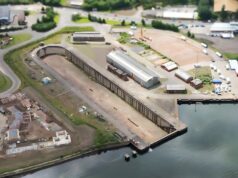
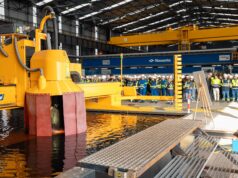
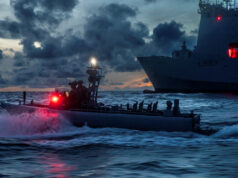

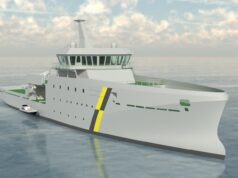

BOOOOOOM!!!!!! Brilliant news. Now order 3.
Exactly Danielle, and how about every RFA ship being built in the UK From now on.
My fear remains that a uk order will mean fewer ships..
Morning Dern.
Agree. I can see both sides of the coin. I understood the complaints about the Tides going to S Korea but was happy the RFA got the ships quickly, and I believe in budget?
I too believe only 2 will be ordered, replacing what were once 4 vessels. Now reduced, as I think the older Forts have had it and are laid up?
Especially with Covid, we need to start putting the UK workforce first. It is up to the government to take into account any extra costs.
Norway’s version, also built in Korea, was also delayed due to technical problems, for over a year!
Seems almost a success compared to years late and billions over.
If you call building several ships delayed, some for over a year, and over budget, then yes, it was a great success.
If they are built in the UK that is the only way we will get any kit at the moment
Brilliant
You know when it says it will create 6,700 jobs, what will happen to those Jobs when the ships are built?
It would greatly depend on what follows if anything, the structural issues within UK shipbuilding of too many yards in the wrong place chasing a tiny trickle of contracts is always going to be there.
There are some big question marks over how UK industry can deliver FSS within a reasonable cost and timeframe.
What could follow is the replacements for Albion and Bulwark or the much talked about hospital ships or the replacement for the Bay class or the littoral strike ships or the Point class SeaLift ships. There is enough potential follow on ship building programs to keep a yard working for the next 20 years without any overseas work if government would fund the needed projects.
Before anyone says something about the hospital ships even Spain has two for their international fishing fleet.
“Before anyone says something about the hospital ships even Spain has two for their international fishing fleet.”
Spain has two small vessels that serve a specific need which is offering medical services for their fishing fleet. The UK does not need any Hospital ships, they would be a waste of resources!
I agree. Better to have a general purpose ship that can quickly be transformed into a hospital ship. We should have the capability but we do not need a specific hospital ship that would be in home port for the majority of its life…
My option would be disaster relief ships with a medical facility and a decent landing plaform capable of taking heavy lift helicopters these could be used during a hurricane season in the carribean
I doubt it. There is no way the UK can build these ships to the same cost as the big players.
Now enough George please no more good news today….. you’ve gone above and beyond already ??
However the personnel of the RFA do not come under the distinction of Warship
“Officer duly commissioned by the government of the State and whose name appears in the appropriate service list or its equivalent, and manned by a crew which is under regular armed forces discipline.”
The CO is not a Commissioned officer under the strict legal sense of the word, and the crew do not come under regular armed forces discipline. They can be made to but only under extremist.
Let’s actually see the timetable for delivery and the spec etc before saying it’s good news. These ships are badly needed to support the carrier’s etc and yet we are no closer to an actual order being placed.
Thank goodness for that, I thought this decision was never going to come. Now all the foreign companies hoping for this contract can get knotted. These ships are going to be built in the UK, for the UK armed forces and for the economic benefit of the UK. About time too.
Now lets get 3 of them ordered asap.
They really need to be up-armed with sea captor, CIWS and ideally a few 50mm BAE guns for close defence and ideally a torpedo defence system as well as double hulled- can we get all that for around £500 million each- hopefully answer is yes.
These are support ships Mr Bell, not Frigates. Fitted with CIWS, very likely, Fitted with mini guns and GPMG ‘s definitely and defensive aids. But no Sea Ceptor or torpedoes. Would add a lot of cost. And then you would need a certain amount of RN crew to operate the weapon systems. Let the T45’s and 23’s look after the shooting stuff ?
But CIWS and other defensives does mean that they have weapons on board and RN on board to operate the weapons.
Anyway good news – with the tankers we will have a robust support fleet for the QEC based CSG.
Yes, definitely good news, let’s hope a definite order is not to long coming ?
Why did that take so long? Seems like common sense to me.
Lack of competitive tenders from within the UK, plus lack of competitive tenders overall.
Just don’t build them in Scotland, that monopoly needs breaking
All of the RFA replacement vessels should be built using one common 200m hull. This common hull should also be used for the Albion replacements.
In my opinion we also need to start building 2 x UXV combatants but based on the same common 200m hull which are large enough to accommodate BMD capable radars and can be packed with a very large quantity of VLS and house UK designed and built unmanned planes and helicopters.
Upgrading the Type 45s with the SMART-L-EWC radar (the successor to the radar the T45’s own S1850M stemmed from) would give them ample ballistic missile tracking. Fitting them with a further 16 VLS would do the trick. The problem would be sacrificing a T45’s other duties to be stationed on BMD.
Now to engage MOD procurement in buying at a reasonable price… and avoid RN gold plating… @Mr Bell is going to be disappointed that they will not be arsenal ships but can we get procurement right in at least some respects?
Cammel Laird for the build anyone?
I hope it is C.L. after they got overlooked for the Type 31.
Or perhaps they might be built in blocks around the U.K. like the aircraft carriers so a number of yards around the U.K. will benefit e.g. Appledore, Cammell Lairds on the Mersey, A & P Tyne, Fergusons on the Clyde.
H& w can build them with the help of appledore which they now own
So one yard with a limited workforce and hasn’t done a “warship” in decades is going to leverage off another yard that is also limited and arguably hasn’t done any warship components in about a decade…
What could go wrong?
Potentially, one of the most significant changes in categorisation for UK shipbuilding. Though, ironically, the EU never required vessels classed as naval support to be put out to foreign tender, of course.
Nope, it was always the UK’s choice for them to be open to a foreign tender, nothing to do with the EU.
why cant the RFA crews be redefined as royal navy reservist and crewed accordingly,
then perhaps retiring sailors can crew them, just an idea
Perhaps its time to fully integrate the RFA into the RN. I never quite understood why they needed to be seperate entitites
Have a look at the US supply ships
Even theres are as you say seperate entitites
So where to build them?
Who will provide the design?
My best guess is Belfast using an existing design for Navantia, similar to the newly built AORs supplied to the RAN.
Not only does it get the builds in the UK it also ticks lots of pork barrel politics boxes for NI. If Navantia Australia has an input that would also be a big quid pro quo for the RAN buying into the T26 programme.
Sounds reasonable to me, NI could do with some major investment too. Say what you like about the Spanish, Navantia is a modern competitive shipbuilder manufacturing hulls in Europe. It’ll be good to get some of those newer engineering processes and skills transferred over too. I believe that was part of the Navantia bid, wasn’t it?
Navantia Australia is unlikely to have much input in regards to a solid support ship to support a QE carrier. They do have an interesting joint support ship design that they have come up with though.
The RAN AOR was a Navantia design tweaked by Navantia Australia for their own requirements. RAN requirements are usually pretty close to RN requirements so a lot of the technical stuff is probably in place.
The build would be H&W with Navantia (Parent Group) input.
If it goes to NI, expect significant delays and cost overruns, you are talking about essentially rebuilding a shipyard and it’s staff, that’s not going to come cheap. Let alone the potential for security issues, or have you forgotten the last RFA hull built in H&W, nearly sunk in the harbour from a terror attack.
Possibly and I see where you are coming from but IMO that is also a very negative short-term view the kind that has kind of got us in the current situation. Yes likely a delay but RFA Victoria can hang on for a bit & most delays would be in 1st of Class.
Considering the current situation it could cost the UK less if x people are employed & not on benefits. As long as this is balanced by the treasury then it doesn’t necessarily have to negatively effect the MOD budget. The fact a lot of jobs would be apprenticeships, would make some labour cheaper.
The skills learnt could result in some commercial activity & hopefully future orders for RN & RFA.
As for security things are very different now and the people of NI would be foolish to shoot themselves in the foot. So whoever attacked would have little support.
The first difficulty you raise is recognised by the bid team this is from Navy News
“Commitment by Navantia to provide technology and know-how transfer to Harland & Wolff, including upskilling of the workforce, with Harland & Wolff’s employees receiving training and acquiring new skills in Navantia’s shipyards.” So any costs in the bid should be factored in.
Just my opinion yes there’s risk but there’s also reward
Does Victoria? There’s been articles highlighting how it’s one of the weak points for the Carrier Strike, she’s pretty much it for them and as they increase training and operations more pressure is going to come on her. How long extra beyond what is already delayed would this bring?
One thing “upskilling” suggests there’s an actual workforce there to upskill, there isn’t. The H&W workforce is mostly brought in on demand from GB, it’s more as you say creating said workforce. Which leads you onto the productivity levels in NI, getting bodies for that increase could also be significant. Which leads back to your point regarding costs to the Treasury, this is NI, economic activity is always a problem. And there are always “foolish” people in NI waiting to hurt anyone they can, Victoria almost sank and perhaps would have if the second bomb went off.
Thats Old news.
Do you really think that someone today will bomb a build in H&W?
Yes.
Great decision, thank you. It is great to see some government support for British shipbuilding.
This doesn’t really help anything or change anything.
Of course it would be great if the replenishment ships could be built in the UK. The reason our auxiliaries and support ships are built overseas is because British yards cannot compete on price, due to lack of investment in modern manufacturing equipment and higher labour rates.
The armed forces are operating on impossibly tight budgets and there is no way they can subsidise less efficient UK yards, they have to buy very keenly or see more cuts to defence procurement elsewhere.
If Navantia and Hartland can bring in a good ship at the price, great, but there is no room for slippage on delivery dates or cost over runs so often seen in our commercial shipbuilding in the past.
Nor are the replenishment ships ‘warships’, as Sleepy points out, they are not commanded by a commissioned RN officer and the crews do not serve under military terms of service. They are fleet auxiliaries commanded, officered and crewed by civilians, which does not a warship make.
It has never been an EU rule that auxiliaries must be open to competitive tender, so this announcement doesn’the change anything really – except that the RN will henceforth have to build it’s auxiliaries in UK yards – whatever the price and whatever the quality and delays.
HMG is making a populist decision to appeal to the red wall and the flag-wavers, but it is the RN that will pick up the bill and suffer the cuts if/when these ships come in years late and over-budget. HMG is notably silent about any government financial support for this move, because of course there won’t be any – the entire risk is being passed to the RN.
If its H&W, there will be delays and overruns.
Not clear: (1) if the MOD still has any hope of buying three units or if the requirement has been formally reduced to two; (2) How much extra building the hulls in the UK will cost; (3) What the effect on in the planned in-service dates will be; (4) Whether the FSS budget has now been increased. If the FSS budget has been increased, then the simultaneous news that the MoD is trying to cancel 2 of the 5 E-7 Wedgetails on order is perhaps an example of how it is having to rob Peter to pay Paul. These seem set to be very expensive and much delayed “warships” – perhaps we sometimes need to careful what we wish for.
How many doom & gloom merchants comment on this site? This should be seen as positive. The Tide class were a success, but not a massive success so demonstrates going abroad is not a magic bullet.
At least the government is making the right noises & some progress is being made the FSS could easily have been conveniently forgotten about.
If they are built in the UK there is political buy in if they went to NI there would be significant political pressure not to reduce the order or increase the order (depending which way you read it).
Oh also more jobs in the UK in the current situation & not sending tax payers money to another country…. Terrible news!
Your analysis seems simplistic and political.
You ignore the hard questions lurking below the populist announcement .
1. British yards did not even put in tenders for building the Tide class tankers, because they could not compete with foreign shipbuilders. How will the FSS ships be any different? A: Short of the yard investing large sums in moderm machinery and slashing GMB wages, theyy won’t, the cost will undoubtedly be much higher than Far East yards.
2. Who will pay the difference? The RN has a procurement budget of £1.9bn pa, of which about half is available for new vessels. That is not enough to buy one T26 frigate. There is no slack at all, which is why the fleet is getting older and vessel numbers keep being cut. There is NO MONEY to pay inflated prices just to have a Made in Britain label on it.
A: HMG has pulled this trick before, paying BAES to keep the Clyde yards afloat until work started on the T26. Except HMG didn’t pay a penny from the Treasury, the money came from the RN’s budget. Without that unlooked-for money grab, the RN could have built a couple of extravel ships.
This FSSS announcement is just more of the same, it will be the RN that ponies up for the extra costs of building British and the result will be the loss of a further couple of minor warships or auxiliaries.
3. Why are we re-classifying civilian-manned vessels as ‘warships’, which is completely illogical and means they will no longer be able to enter a number of foreign ports? A: Because the move is solely a political play to look good in the red wall seats and appeal to Little England error flag wavers
Were defence criteria considered, the outcome would be very different:
a) Competitive tendering is essential to get the best result at the best price, particularly in view of UK yards uncompetitive pricing
b) To equate apples with apples, factor into the bids the additional financial revenue from a UK yard, in terms of tax and VAT paid by yard and workforce to the Treasury and cost of unemployment if labour force laid off due to not getting the order
.c) If the UK yard is still uncompetitive, which it generally will be, meet the difference from the Trade & Industry budget, it is their remit to succour British industry, that is not the job of the services.
It is infuriating the way the Government starves the defence budget then plays fast and loose with it, as that are doing here.
It is equally infuriating that a lot of happy chappies then cheer on Dom Cummings’ latest PR trick without a clue as to what is really happening or the adverse affect on defence.
Don’the wave about words like doom and gloom when you clearly bring very little knowledge about the issues to the table.
That is fascinating r.c. A thought provoking differing take on things.
2a of your list, that is shocking, if true???
Ah, GMB. Appalling union. Always the moral high ground but it turns out they love sexual harassment…
As a retirered VT shipbuilder of UK & international warships RFA’s are built to merchant ship regulations not to warship construction rules hence this maybe why they had not been classed as warships.
Yes we should build our own warships as UK warship construction was the best in the world however these days limited shipbuilding of high quality is limited in UK priority now being on making money by expensive upgrades due to poor design.
This is very thin evidence for a change in policy, though I do think they will be built in the UK, but his is not how that news will be announced.
After before the 2012 MARS tanker order we were saying how much will be lost the UK industrial sector in terms of facilities, skills, money and over all well being of this Country and her people. We know all about the facilities, skills and well being, being we are the iconic maritime Nation in the World.
But. Those ships were late and needed looking at due to fault in which if it had been a UK firm we would never of heard the last of. Late by a year and cost more than the 452 Million pounds in 2011/12 order, in fact 550 Million pounds just for the no taxpayer claw back shipbuild bit. Then there was the UK 160 millon pounds in which really cost 90 million quid due to claw back. So 550 plus 90 makes 640 million pounds in which the 550 million pound needs 40% added due to claw back lost, make them four 250 million pounds and 1 billion pounds for four tankers, the most expensive worst value for the UK taxpayer ever. Don’t buy from abroad, which mean as much as possible, especially steel plate, section and pipe etc.
When the UK gets it, yeah and tax back it will realize that three ships built in the UK is cheaper than two ships built abroad!
Labour rates cheaper abroad a myth, built abroad cheaper a myth, quicker abroad a myth etc…
That’s good news, but this is where our public financing rules will fall down and cost the MOD budget allocation.
The problem is according to public finances they could have got them cheaper if they had tendered internationally so the mod budget will be hit.
This is clearly insanity as the MOD will be buying these ships from British shipyards using British workers, there is a very significant tax stream strait back into the public finances, which means the net cost to the taxpayer is actually lower than buying a cheaper ship from Korea.
The problem is that this net benefit is not offset into department budgets so the MOD looses out.
The public finances should including all its tax generation back into the economy as a form of published offset, so people can actual see the real spend.
The best example of this is the NHS budget of £130 million ish… but that’s not what it actually costs the taxpayer…no sir, no where near. Around half the nhs budget is wage bill (over a million staff). That’s a lot of tax, also the NHS staff pension contribution goes strait back into the general tax take ( so I pay a basic 14.5 % of my whole wages then national insurance then basic tax, I give 40% back even before every other indirect tax kicks in) . Once you include the employers contributions ( yes hospitals have to pay this back) and, money payed to UK drug companies and private providers ( which then pay corporation tax and employees PAYE) and then this workforce all paying council tax and vat and road tax ect….The nhs is probably generating 50% of its budget back into the public finances in a sort of massive public money shuffle.
I mean 130 billion not 130 million…